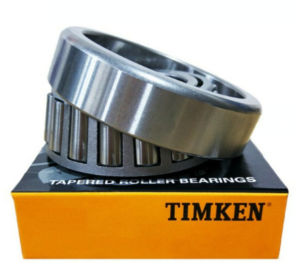
In the realm of bearing manufacturing, the choice of materials and manufacturing processes plays a crucial role in determining the performance and reliability of bearings. SKF and TIMKEN are leading manufacturers known for their commitment to quality and innovation. This article provides a detailed analysis of the bearing materials and manufacturing processes employed by SKF bearings and TIMKEN bearings, offering insights into their unique characteristics and advantages.
Bearing Materials:
SKF Bearings:
SKF utilizes a variety of high-quality materials in the manufacturing of its bearings, tailored to specific application requirements. Common materials used in SKF bearings include:
Bearing Steel: SKF bearings are primarily made from high-carbon chromium steel, known for its excellent strength, hardness, and wear resistance. This high-quality steel ensures durability and reliability in demanding operating conditions.
Stainless Steel: SKF offers bearings made from stainless steel for applications requiring corrosion resistance and high cleanliness, such as food processing, medical equipment, and chemical industries.
Ceramic: SKF utilizes ceramic materials such as silicon nitride (Si3N4) for rolling elements in bearings subjected to extreme conditions, such as high temperatures, corrosive environments, or high-speed operation. Ceramic bearings offer superior performance and extended service life compared to conventional steel bearings.
TIMKEN Bearings:
TIMKEN employs advanced materials science to develop bearings with exceptional performance characteristics. Key materials used in TIMKEN bearings include:
Alloy Steel: TIMKEN bearings are predominantly made from alloy steels, which are alloyed with elements such as chromium, molybdenum, and vanadium to enhance mechanical properties such as strength, hardness, and wear resistance. This allows TIMKEN bearings to withstand heavy loads and harsh operating conditions.
Specialized Coatings: TIMKEN utilizes specialized coatings and surface treatments to improve bearing performance and durability. These coatings may include corrosion-resistant coatings, low-friction coatings, and thermal barrier coatings, which enhance wear resistance and protect bearings in challenging environments.
Manufacturing Processes:
SKF Bearings:
SKF employs advanced manufacturing processes to ensure the highest quality and precision in its bearings. Key manufacturing processes used by SKF include:
Precision Machining: SKF utilizes state-of-the-art machining equipment and techniques to produce bearing components with tight tolerances and exacting specifications. Precision machining ensures consistent performance and reliability in SKF bearings.
Heat Treatment: SKF employs precise heat treatment processes to optimize the mechanical properties of bearing components, such as hardness, toughness, and microstructure. Heat treatment enhances the strength and durability of SKF bearings, ensuring long service life.
Surface Finishing: SKF pays meticulous attention to surface finishing processes, such as grinding, polishing, and superfinishing, to achieve smooth bearing surfaces with low friction and wear. This results in SKF bearings with superior performance and reduced operating temperatures.
TIMKEN Bearings:
Welcome inquiry to delia@whcdbearings.com , Fast and Professional support !
Stock available, Fast shipment within 2-3 days.
TIMKEN’s manufacturing processes are characterized by precision engineering and stringent quality control measures. Key manufacturing processes used by TIMKEN include:
Cold Forming: TIMKEN employs cold forming techniques to shape bearing components with high precision and dimensional accuracy. Cold forming minimizes material distortion and ensures uniformity in bearing components, resulting in consistent performance.
Grinding and Honing: TIMKEN utilizes advanced grinding and honing processes to achieve precise tolerances and surface finishes on bearing components. These processes improve bearing quality, reduce friction, and enhance overall performance.
Inspection and Testing: TIMKEN conducts rigorous inspection and testing throughout the manufacturing process to ensure the quality and reliability of its bearings. Quality control measures include dimensional inspection, metallurgical analysis, and performance testing to verify compliance with specifications.
Conclusion:
In conclusion, both SKF bearings and TIMKEN bearings employ advanced materials and manufacturing processes to produce bearings of exceptional quality and performance. While SKF excels in utilizing ceramic materials and precision machining techniques, TIMKEN specializes in alloy steels and specialized coatings. By understanding the nuances of bearing materials and manufacturing processes, customers can make informed decisions when selecting SKF or TIMKEN bearings for their applications.
